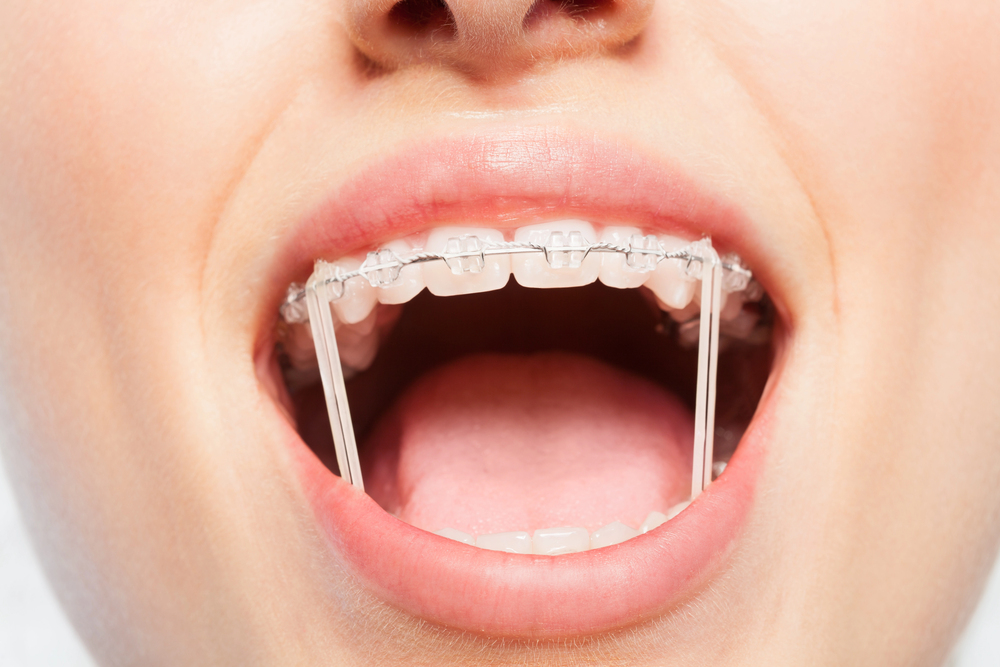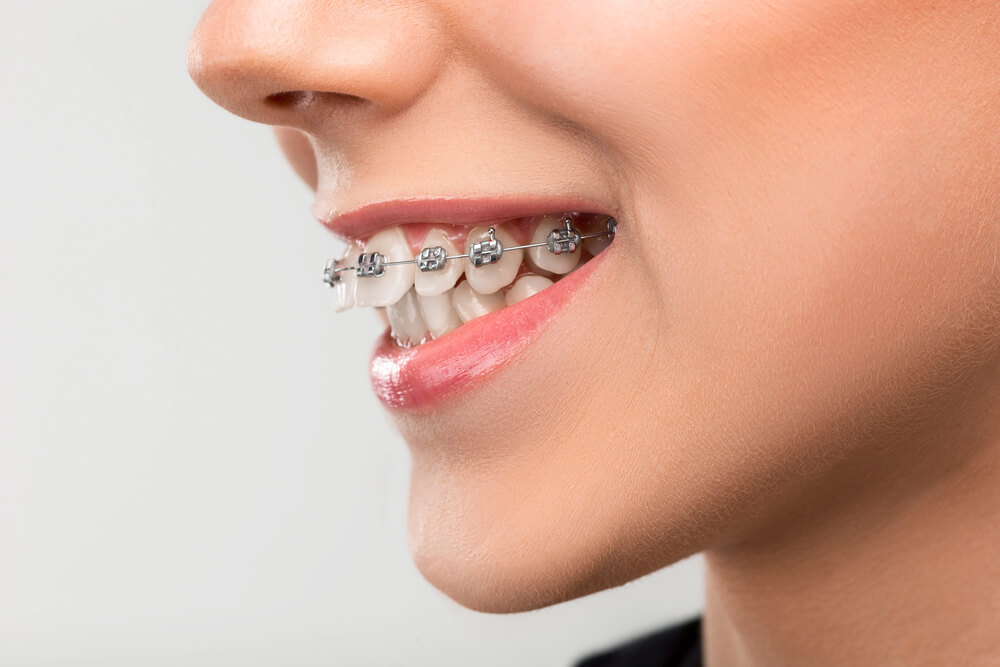An overbite is a dental condition where the upper front teeth overlap the lower front teeth. But is an overbite normal to have? Everybody has a slight overbite. However, some people with more pronounced overbites may need orthodontic treatment. Here’s an overview of overbites and available treatment options.
How Much Overbite Is Normal?
A normal overbite is when the upper front teeth overlap the lower front teeth by about 2 to 4 millimeters, covering roughly one-third of the lower teeth. This slight overlap helps ensure proper functioning and aesthetics of your teeth by guiding your teeth into the correct position when you close your mouth. A slight overbite protects your teeth from wear and tear and helps you chew and speak.
However, when the overlap exceeds this range, it is usually considered an excessive overbite. If you have an excessive overbite, your upper teeth may cover more than half of your lower teeth. Excessive overbites require intervention.
What Causes an Overbite?
Several factors can lead to the development of an overbite. These include genetics, childhood habits and dental crowding and misalignment.
Genetics play a significant role in the development of an overbite. If one or both parents have an overbite, their children are more likely to inherit this dental characteristic. Genetic factors can influence the shape and size of the jaw, the alignment of teeth and the spacing between teeth, all of which can contribute to the degree of overbite.
Childhood habits are another major contributor to the development of an overbite. Prolonged thumb-sucking, excessive use of pacifiers or tongue thrusting can exert pressure on the teeth and jaw, leading to an overbite. These habits are most influential during the developmental years when the jaw and teeth are still growing.
Dental crowding and misalignment can also cause an overbite. When there is not enough space in the mouth for all the teeth to fit properly, the teeth may shift and overlap, resulting in an overbite. This can occur naturally due to the size and shape of the teeth or as a result of tooth loss.
Jaw growth and development issues can lead to an overbite as well. In some cases, the upper jaw may grow more rapidly than the lower jaw, or the lower jaw may be underdeveloped, causing the upper teeth to protrude over the lower teeth.
Poor oral habits and improper chewing can further exacerbate an overbite. Chewing on pens, biting nails or grinding teeth can cause additional wear and stress on the teeth and jaw, potentially worsening an existing overbite.
Is It Bad To Have an Overbite?
Having a slight overbite is not bad. Overbites are normal and help your teeth function properly. However, an excessive overbite can cause problems. For example, an excessive overbite can lead to jaw pain or temporomandibular joint (TMJ) disorders. TMJ disorders occur when the overbite impacts the alignment of the jaw. These disorders can cause discomfort, headaches, and difficulty in opening and closing the mouth.
Excessive overbites can also increase the wear and tear on your teeth. If the upper teeth overlap the lower teeth more than they should, it can cause stress on the lower teeth and lead to chipping, cracking or uneven wear.
Another concern with an excessive overbite is its impact on speech and chewing. In some cases, a pronounced overbite can interfere with the proper function of the mouth, making it difficult to chew food effectively or pronounce certain words clearly. Additionally, individuals with an excessive overbite may also be at risk of developing gum problems or experiencing irritation on the roof of the mouth.
Though a mild overbite typically doesn’t require correction, an excessive overbite may require you to seek professional help.
How To Fix an Overbite

The process of correcting an overbite depends on the severity of the condition and the age of the patient. For children and adolescents, whose jaws are still developing, early intervention can often guide the jaw’s growth and align the teeth properly. Adults are more likely to require orthodontic appliances to move their teeth into the correct position.
Braces are a common and effective method for correcting an overbite. Braces work by applying continuous pressure over time to move the teeth into their proper positions. Both traditional metal braces and clear aligners, such as Invisalign, can be used to treat overbites.
Clear aligners are a popular alternative for those who prefer a more discreet treatment option. They work similarly to braces by gradually shifting the teeth into alignment. However, clear aligners may not be suitable for all types of overbites.
Other orthodontic appliances, such as retainers or elastics, can be used to correct an overbite. These devices help adjust the position of the teeth and jaw by exerting pressure in specific areas.
In some cases, especially when the overbite is linked to skeletal issues, jaw surgery might be recommended to achieve the best results.
Can You Fix an Overbite Without Braces?
Braces are not the only option when it comes to correcting an overbite. For younger patients, orthodontic headgear or palate expanders can help correct the overbite by guiding the growth of the jaw and teeth.
Adults looking to avoid braces have a few alternatives, but the effectiveness of these options may vary. Removable retainers or clear aligners can help manage mild overbites. In some cases, behavioral adjustments such as correcting tongue thrust can reduce the severity of an overbite.
The success of non-brace treatments depends on the individual’s specific dental structure and the severity of the overbite. In many cases, especially those involving significant overbites or jaw alignment issues, braces or other orthodontic interventions may be necessary to achieve the desired results.
Are Overbites Normal for Orthodontic Patients?
Patients often wonder if having an overbite is normal. The answer is that it’s common to have a slight overbite. In fact, a slight overbite helps ensure the proper functioning of your teeth. However, an excessive overbite will require intervention. If you have any questions about overbites or are interested in orthodontic treatment, contact us at Peterson Family Orthodontics. Our friendly team is here to help you every step of the way on your orthodontic journey.

